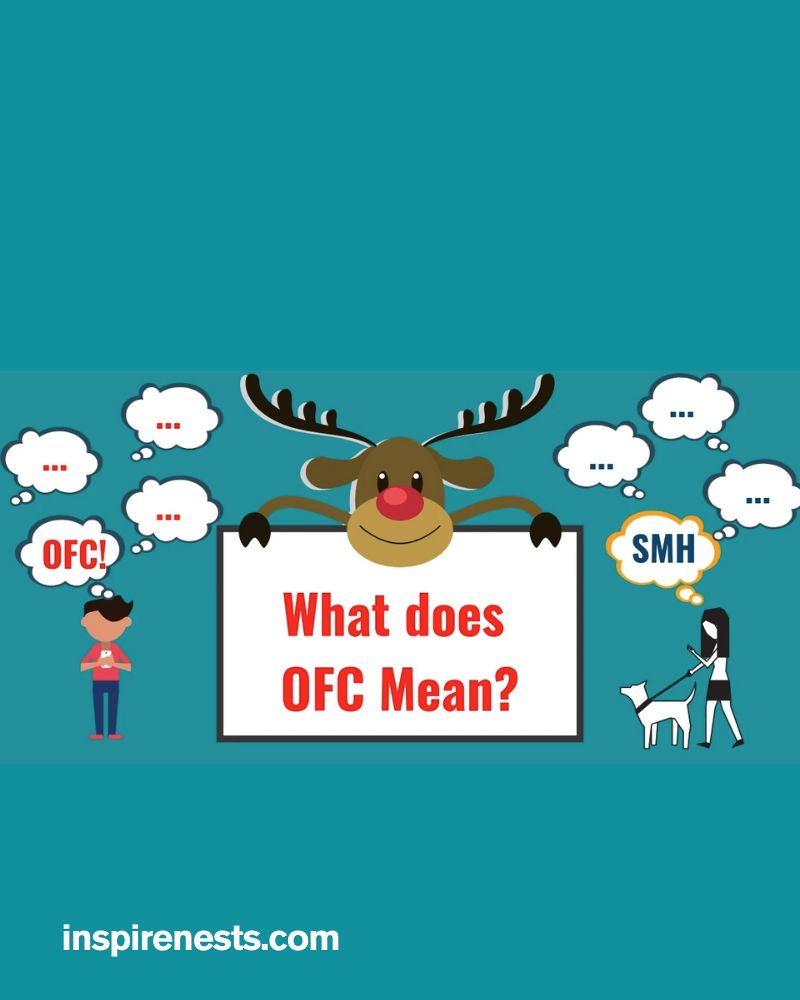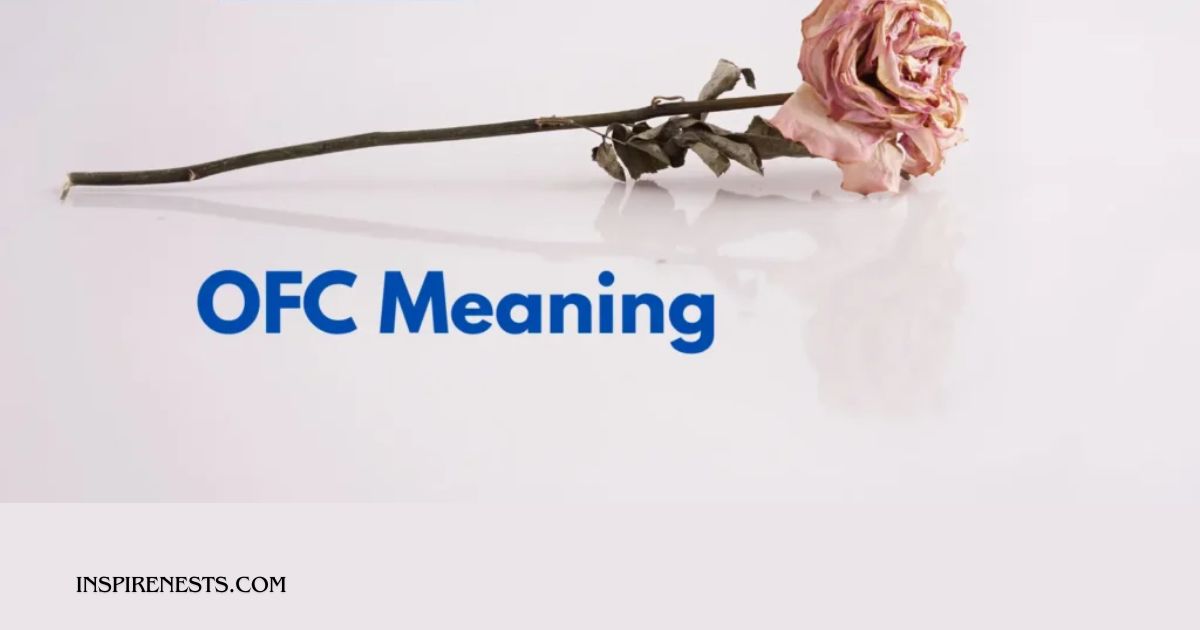The way Americans communicate has changed dramatically in recent years. Digital communication now dominates how we connect with friends, family, and colleagues. Text messages, social media platforms, and online messaging apps have become our primary tools for staying in touch.
This shift has brought new challenges. Abbreviations and slang terms appear everywhere in our daily conversations. One abbreviation that causes particular confusion is “ofc.” Many people encounter this term but struggle to understand its ofc meaning and when to use it appropriately.
What does “ofc” actually mean? More importantly, when should you use it in your personal and professional communications? Understanding ofc meaning helps you navigate modern digital communication with confidence. This guide provides everything you need to know about using “ofc” correctly across different situations.
Read More: 2025 Pookie Meaning
What Does “Ofc” Mean? Understanding the Basics?

Understanding ofc meaning starts with its basic definition. The abbreviation “ofc” stands for “of course.” This shortened words approach helps people communicate faster in texting and online conversations.
“Ofc” developed as part of SMS language culture in the United States. Americans began using this abbreviation to save time while typing text messages. The term quickly spread across social media platforms and online messaging apps.
Common Contexts Where You’ll Encounter “Ofc Meaning”
Where will you see ofc meaning used most often? Text messages between friends represent the most common usage context. People use “ofc” when responding to invitations, requests, or questions from close contacts.
When and How to Use “Ofc” Appropriately?
Knowing when ofc meaning fits your conversation requires context awareness. Casual language situations welcome this abbreviation freely. Close relationships allow for informal expressions without concern about tone of voice misunderstandings.
Family communications represent ideal ofc usage scenarios. Parents texting teenagers, siblings coordinating plans, or cousins sharing updates can use “ofc” naturally. These relationships support friendly tone communications without professional tone requirements.
Professional Boundaries: Where “Ofc Meaning” Should Be Avoided
Understanding where ofc meaning becomes inappropriate protects your professional reputation. Business emails to clients, supervisors, or external partners should avoid casual language entirely. Formal communication demands complete sentences and proper grammar.
Real-World Examples of “Ofc Meaning” in Context
Practical examples demonstrate appropriate ofc meaning usage. Consider this text message exchange between friends: “Can you pick me up at 7?” Response: “Ofc! See you then.” This casual affirmation works perfectly in informal language settings.
Professional and Polite Alternatives to “Ofc” for Business Communication
Mastering alternatives to ofc meaning elevates your professional communication. Business emails, client interactions, and formal communication scenarios require polished language choices. These alternatives maintain professionalism while expressing agreement effectively.
Formal Business Alternatives to “Ofc Meaning”
“Absolutely” serves as an excellent professional alternative. This emphatic response conveys enthusiasm while maintaining a professional tone. Business emails to supervisors or clients benefit from this affirmation approach.
Example usage: “Can you attend tomorrow’s board meeting?” Response: “Absolutely, I’ll be there with the quarterly reports.” This confirmation demonstrates commitment and professionalism.
Semi-Formal Workplace Alternatives
“Definitely” bridges casual and professional communication. Team text messages, internal project coordination, and colleague interactions welcome this confirmation approach. The term maintains a friendly tone while respecting professional boundaries.
Client-Facing and Customer Service Alternatives
“I would be happy to” demonstrates service-oriented professionalism. Customer support, client requests, and service provider communications benefit from this alternative. The phrase shows willingness while maintaining respect.
Choosing the Right Alternative Based on Context
Successful alternative selection requires audience analysis. Consider your relationship with the recipient, the communication channel, and the expected language register. Professional settings demand higher formality than personal relationships.
“Ofc Meaning” Across Different Digital Platforms
Platform-specific norms shape appropriate ofc meaning usage. Each digital communication channel develops its own digital etiquette standards. Understanding these differences helps you communicate effectively across various platforms.
Platform-Specific Usage Patterns for “Ofc Meaning”
Text messaging apps welcome casual abbreviations freely. iMessage, WhatsApp, and standard SMS communications among friends and family embrace “ofc” usage. These platforms support informal language and shortened words naturally.
Generational Differences in “Ofc Meaning” Interpretation
Generation Z users embrace ofc meaning most readily. Americans born after 1997 grew up with digital communication as their primary interaction method. They use chat abbreviations naturally and expect others to understand SMS language.
The Psychology Behind Abbreviations Like “Ofc”
Understanding why Americans embrace ofc meaning reveals deeper communication trends. Digital communication patterns reflect cultural values around efficiency, connection, and language style evolution. These psychological factors influence how abbreviations gain acceptance.
Why Americans Embrace “Ofc Meaning” in Digital Communication?
Efficiency drives abbreviation adoption in fast-paced American culture. People send hundreds of text messages monthly. Shortened words like “ofc” reduce typing time while maintaining clear communication. This message efficiency appeals to busy lifestyles.
Common Mistakes and Misunderstandings About “Ofc Meaning”
Avoiding ofc meaning errors protects your communication effectiveness. Common mistakes include contextual usage problems, tone of voice misreadings, and inappropriate language register choices. Understanding these pitfalls helps you communicate more successfully.
Frequent Errors in “Ofc” Usage and Interpretation
Context misreading creates the most common ofc meaning problems. Using casual language in formal communication settings damages professional relationships. Business emails to clients or supervisors should avoid abbreviations entirely.
How to Recover from “Ofc Meaning” Communication Mistakes?
Professional recovery strategies help repair damaged relationships. If you used “ofc” inappropriately in business emails, send a follow-up message with complete phrasing. Acknowledge the informal language and provide professional tone clarification.
Best Practices for Modern American Digital Communication
Creating effective communication strategies balances efficiency with professionalism. Modern digital communication requires flexibility across text messages, social media, online messaging, and business emails. These practices help you navigate diverse communication contexts successfully.
Creating Communication Guidelines That Include “Ofc Meaning”
Establishing clear boundaries for different communication channels helps avoid confusion. Text messages with friends can embrace casual language including “ofc.” Professional settings require more formal communication approaches with complete phrases.
Balancing Efficiency with Professionalism
Strategic abbreviation use maximizes communication effectiveness. Casual language works well for internal team coordination and quick response needs. Formal communication serves client interactions, executive correspondence, and external partner relationships.
Conclusion
Understanding ofc meaning represents a crucial component of effective digital communication in contemporary American business and personal contexts.
This abbreviation functions as an efficient quick response mechanism for casual language environments while demanding careful consideration in professional settings.
The distinction between appropriate informal language usage and formal communication requirements directly impacts relationship quality and professional reputation.

Admin of Inspirenests.Com, dedicated to fostering educational growth and inspiration. Passionate about delivering reliable and insightful resources to empower learners and educators on their journey to success.
